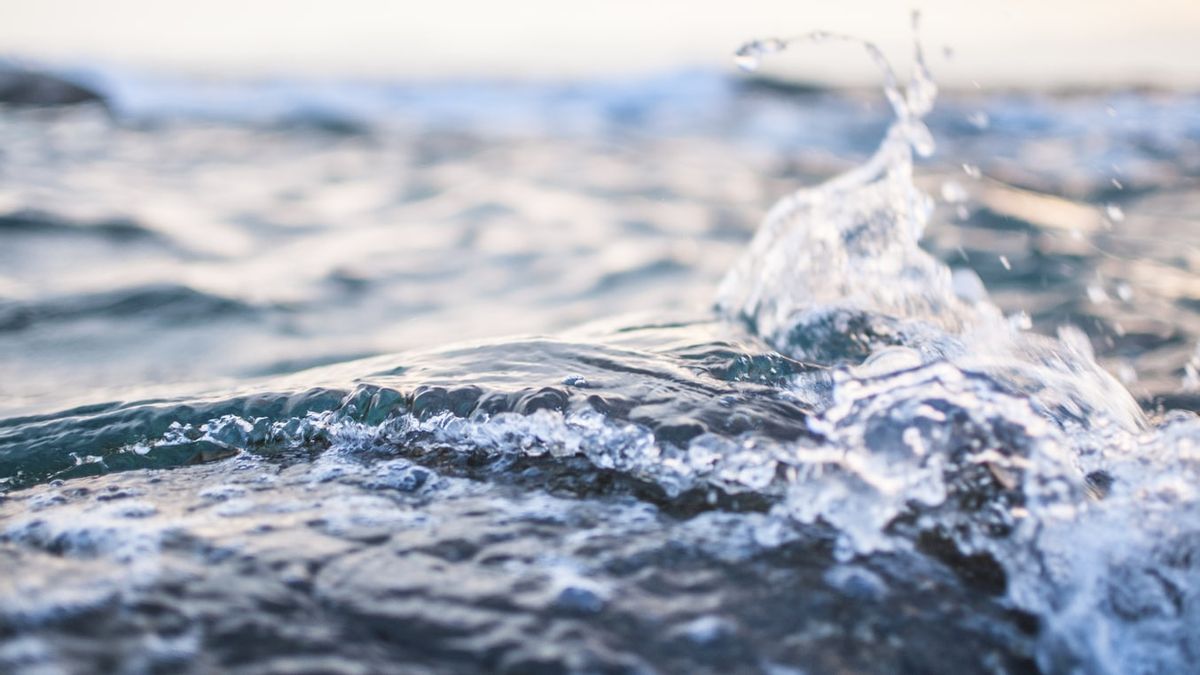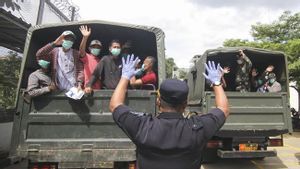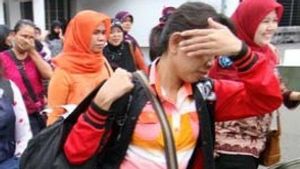JAKARTA - World Water Day is commemorated every 22 March. For the last two years, this warning fell when the COVID-19 pandemic became a global concern.
Not much different from previous years, the issue of clean water scarcity in Indonesia becomes an interesting discussion on every commemoration of World Water Day.
It should be noted, the theme of World Water Day in 2021 is "Valuing Water" or "Appreciating Water". So, what is the meaning?
The United Nations, through the United Nations Development Program (UNDP) or the United Nations Development Program Agency, explained that this theme specifically recognizes the importance of a healthy ecosystem in maintaining water supplies around the world.
"In the midst of water, nature and climate crises, the reciprocal relationship between water and ecosystems is a concept that we must embrace more fully," wrote the official website of UNDP, Friday, March 19.
2.2 Billion People Are In Scarcity Of Clean WaterBased on UN data, currently 2.2 billion people or a quarter of the world's population still lack access to clean water. In 2050 it is projected that world water demand will increase by 55 percent,
Then a 40 percent water deficit is projected to occur in 2030. Meanwhile, the water crisis in the future is predicted to be a natural disaster and will reduce GDP by 6 percent in several regions by 2050.
The clean water ecosystems highlighted by UNDP include forests, wetlands, grasslands and mangroves. These ecosystems naturally protect and filter water sources, regulate water flow over time, and protect communities from disasters caused by water or climate change.
"But these ecosystems are under severe threat: 420 million hectares of forest have been deforested globally since 1990, and 87 percent of wetlands have been lost since 1700," said UNDP.
UN Invitation in the Middle of World Water DayIn order to achieve water security, the UN through UNDP calls on the world's population to rapidly advance nature-based solutions at the national and global water policy levels, and bring local solutions to a larger scale.
To realize its call, UNDP calls on decision makers to take the following steps:
1. Spatial Data UtilizationUNDP calls on its members to take advantage of the new spatial data to identify the best places for immediate action.
UNDP and its partners have spearheaded a process for mapping life-supporting areas including water. The process of utilizing spatial data is already being used in Colombia with the aim of securing water for more than 15 million people.
2. Protection of Customary Land RightsIn addition to protecting customary land rights, UNDP calls on the government to take ecological knowledge from adat.
It should be noted, indigenous peoples manage 80 percent of the remaining biodiversity on Earth, but do not have formal rights to most of their land.
The UN itself considers that the protection of land rights is very important to ensure that indigenous peoples can continue to manage nature for water, as they have done for centuries.
3. Finance and Investment MobilizationIt is estimated that an investment of USD 6.7 trillion will be needed to achieve water-related goals by 2030. However, nature is still considered to be underfunded.
UNDP specifies that nature only represents 1 percent to 5 percent of investment in water resources. Mixed finance, green bonds, and payment schemes for ecosystem services provide an opportunity to overcome these financial barriers.
4. Cooperate with the private sectorFinally, UNDP invites the government to collaborate with the private sector to address the issue of water insecurity. This is because the loss of nature is at the same time a big threat to business.
However, to date there have been gaps in understanding the actions taken by the private sector. UNDP calls on company leaders to be involved in investing in nature as part of their water sustainability plans.
Scarcity of Clean Water in NTT and the SolutionBatuinan village in East Nusa Tenggara (NTT) is an example of an area hit by annual drought. Residents in the area used to have to walk long distances to get clean water from springs.
But now, the people of Batuinan Village can be more relieved because there is a solar water tank initiated by UNDP Indonesia.
The water tank, which can accommodate 3,300 liters, was made with funding sources from the Global Environment Facility (GEF) in collaboration with a local community group, namely the Cemara Foundation.
Hectoreda Ukat (Grandma Eda) is a resident whose backyard is used as a water storage, and she is grateful.

"We are very happy with the water tank. Now water is within our reach," said the 75-year-old grandmother.
The role of Grandma Eda in Batuinan Village is very important. Every morning she has to supervise the distribution of water for 19 families in her village. As a rule, each family gets three jerry cans that can be filled between 07.00 and 09.00.
"Sometimes they want to take more than three jerry cans, which makes me sad," said Grandma Eda.
Synergy with Community Groups to Maintain Water Supply
One of the effective solutions in maintaining and increasing the water supply in Batuinan Village is cooperation between community groups.
It is known that the Cemara Foundation in practice cooperates with local community groups such as the Cute Motorcycle Gang (GMI) and CIS Timor. It's just that the challenge is limited infrastructure.
In addition, the people of Batuinan Village are now also faced with other obstacles such as threats to environmental sustainability and potential social conflicts due to scarcity of resources.
It should be noted, Batuinan Village, located on Semau Island, is home to several communities that are mostly patriarchal, with men having succession rights.
However, the appointment of Nenek Eda as Doha Bating Ui or water guard, shows that various communities in Batuinan Village provide opportunities and believe that women can become leaders.
Batuinan Village is an example as recommended by the UN, where synergy between indigenous people is needed to maintain water supply and availability. On the other hand, the government certainly plays an important role in providing facilities in the form of adequate infrastructure. Happy World Water Day!
Apart from the scarcity of clean water in Indonesia and the commemoration of World Water Day, follow other domestic and foreign news only on VOI, Time to Revolutionize the News!
The English, Chinese, Japanese, Arabic, and French versions are automatically generated by the AI. So there may still be inaccuracies in translating, please always see Indonesian as our main language. (system supported by DigitalSiber.id)













